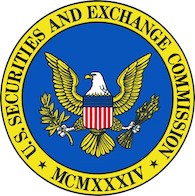 What Do I Do After I’m Arrested In Miami Florida? Part One of Three Part Series.
What Do I Do After I’m Arrested In Miami Florida? Part One of Three Part Series.
This three part series: What Do I Do If I Am Arrested in Miami Florida, is a complete run-through of the criminal court processes from arrest through final disposition of a Miami criminal case.
Part One Of Three:
You have been arrested in Miami (by a Florida police officer or deputy sheriff), this starts the criminal court process. Bienvenidos a’ Miami! I will lead you through the mine-fields after your arrest in South Florida, and there are many.
Posting A Bond:
In all cases, you are entitled to a reasonable set of pre-trial release conditions, or bond, unless it is a capital charge, or you are currently on pre-trial release in Florida or any other jurisdiction. Generally, this requires that you post a bond with the court. A bond is a binding agreement to pay, or deposit money to the court to assure the Court that you will appear for your scheduled court dates. This holds true regardless of whether you are arrested in Miami, Florida, or anywhere else in Florida. A bond is intended to assure your appearance in the case. Your bond may either be a cash bond in smaller cases, or a surety bond in larger cases. To post a surety bond you will need the assistance of a bondsman who will file a bond with the court on your behalf, guaranteeing your appearance at all scheduled court dates. The bond is a conditional release. Therefore, if you are arrested for a subsequent offense while you are out on bond, your original bond may be revoked by the court without notice. If you cannot afford to post the bond that is set by the court it may be necessary to request a bond reduction hearing with the court. I can move the court on your behalf quickly for a bond reduction. Depending on the severity of the allegations made against you, the court may also impose other conditions of your pre-trial release, which could include many other restrictive conditions, such as electronic monitoring.
Magistrate Court:
Once you are arrested, you are entitled to a magistrate hearing within 24 hours if you are still in custody for a determination of whether probable cause exists for your arrest. I have represented thousands of clients in magistrate court. Probable cause for an arrest are facts and circumstances, which would lead a reasonably prudent person to believe that a crime has been committed. If no probable cause is found for your arrest, you can be released on your own recognizance. In the majority of cases, probable cause is found by the magistrate judge and the bond amount is generally set by the Clerk of Courts, as a standard bond amount. If your arrest stems from an arrest warrant (a court order by a judge commanding your arrest), the judge signing the arrest warrant will set the bond amount, which is typically higher than a standard bond amount for the same offense.
Tracking Your Case:
Within a day or two, the probable cause affidavit or initial arrest report on your case, will filter it’s way to the Clerk’s Office from the booking desk at the jail. You will be assigned a case number and judge by random assignment. This information is normally viewable online at the Clerk Of Court’s Website. You can track certain information about your case, including court dates and case status from the same site once it is logged online.
Part Two Of Three we will discuss what happens during and after a criminal case filing decision is made by the Miami State Attorney’s Office.
—
This article by Miami Federal Criminal Defense Lawyer Ralph S. Behr is for informational purposes only and should not be construed as constituting legal advice. You should consult with your attorney to determine the best course of action to take on your case. For consultation regarding the specific facts of your case and arrest please contact Miami Criminal Lawyer Ralph S. Behr.
 South Florida Criminal Defense Lawyer Blog
South Florida Criminal Defense Lawyer Blog







 n turn received the data early last year from an anonymous source. The leak was far too big for the German newspaper to handle on its own and enlisted the ICIJ to aid in the investigation of the leaked documents.
n turn received the data early last year from an anonymous source. The leak was far too big for the German newspaper to handle on its own and enlisted the ICIJ to aid in the investigation of the leaked documents.

 In return the United States banking authorities have waived, or declined to use, their power to suspend Credit Suisse from conducting investment and banking business within the United States. Swiss banking laws do not permit any bank to reveal the identity of its depositors. Several years ago, U.S. Federal criminal authorities pursuing tax avoidance charges against U.S. citizens, demanded and received assurances from Swiss government officials that the names of U.S. citizens would be revealed. The Swiss never completed the understanding. Banking regulators in New York and the Justice Department and the office of United States Attorney General, in Washington D.C have imposed, and will share, a $2.6 billion fine imposed on Credit Suisse. The big Swiss Bank and its parent company, have pled guilty to one count of conspiracy to aid in tax invasion, a felony.
In return the United States banking authorities have waived, or declined to use, their power to suspend Credit Suisse from conducting investment and banking business within the United States. Swiss banking laws do not permit any bank to reveal the identity of its depositors. Several years ago, U.S. Federal criminal authorities pursuing tax avoidance charges against U.S. citizens, demanded and received assurances from Swiss government officials that the names of U.S. citizens would be revealed. The Swiss never completed the understanding. Banking regulators in New York and the Justice Department and the office of United States Attorney General, in Washington D.C have imposed, and will share, a $2.6 billion fine imposed on Credit Suisse. The big Swiss Bank and its parent company, have pled guilty to one count of conspiracy to aid in tax invasion, a felony.